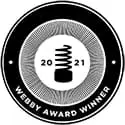Economic Justice & Disability, featuring Dessa Cosma, Detroit Disability Power

Transcript
[Dessa Cosma, a white woman wearing a denim shirt and blue jeans, arrives for an interview in an airy industrial studio. She is a little person and is using a wheelchair.]
DESSA COSMA: For the last 15 years, I’ve worked in social justice. Working on economic justice and racial justice and women’s rights, I started feeling lonely in those spaces. There was this wide array of communities being represented and issues being represented—but not disability.
[on-screen graphic: Economic Justice & Disability]
COSMA: My name is Dessa Cosma.
People with disabilities are some of the most impoverished people in the United States. We typically live below the poverty line, and because of lack of access to education and jobs, we will remain there unless we do something about it. And so to work on anti-poverty or economic justice without a focus, at least in some way, on disability means that you’re leaving out the most marginalized people in that marginalized category.
If we are going to help people with disabilities get out of poverty, and if we’re serious about ending poverty, we have to pay specific attention to people with disabilities and coming up with solutions particular to them. Because a lot of times solutions put towards a community without attention to disability further marginalizes people with disabilities in the process.
Everything that’s wrong with our society was a set of choices, and the beautiful thing about that is that we can make different choices. So, there’s this huge opportunity to rebuild our world in a way that actually works for people, and not just a few people.
[on-screen graphic: There Is No Justice without Disability]
Accessibility Statement
- All videos produced by the Ford Foundation since 2020 include captions and downloadable transcripts. For videos where visuals require additional understanding, we offer audio-described versions.
- We are continuing to make videos produced prior to 2020 accessible.
- Videos from third-party sources (those not produced by the Ford Foundation) may not have captions, accessible transcripts, or audio descriptions.
- To improve accessibility beyond our site, we’ve created a free video accessibility WordPress plug-in.
Dessa Cosma is executive director of Detroit Disability Power, a Ford grantee, working to build the organizing power of the disability community. If you’re working on economic justice but aren’t including a focus on disability, she explains, you’re leaving out the most marginalized people.
“People with disabilities are some of the most impoverished people in the United States. We typically live below the poverty line and because of lack of access to education and jobs, we will remain there unless we do something about it.”
In the United States, there is upwards of a 70 percent unemployment rate in disability communities. This number is a direct result of unjust systems that limit access to education, jobs, housing, and transport for disabled people.
Dessa asks us to reimagine these systems so that, together, we can create a future of work that is beneficial for everyone.
Resources
Interested in learning more about how to center people with disabilities in your work? Check out these helpful resources from our grantees.
- Read the report, Advancing Economic Security for People with Disabilities, from the Center for American Progress.
- Learn about Best Practices for Employment from the National Organization on Disability.
- Listen to Disability Rights are Civil Rights, a podcast from Leadership Conference on Civil and Human Rights.
- Work with Detroit Disability Power, which facilitates workshops for social justice organizations wishing to better understand the systemic oppression of disabled people.
This piece is part of Disability Demands Justice, a dynamic, ever-evolving hub to deepen our understanding of how disability intersects with social justice.
Explore the stories
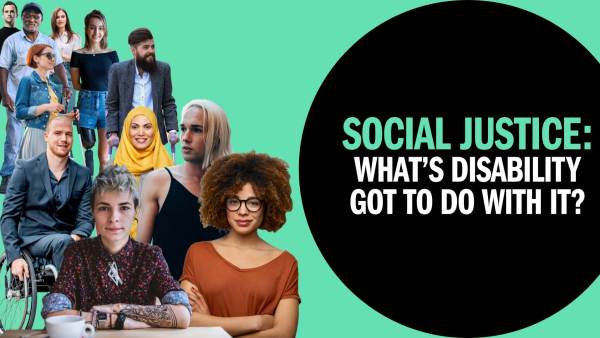
Social Justice: What’s disability got to do with it?
A society cannot be truly just without including people with disabilities and taking an intersectional approach towards tackling discrimination. This starts with inclusive leadership, where people with disabilities are invited into discussions and lead the way in advocating for inclusive, equitable spaces.
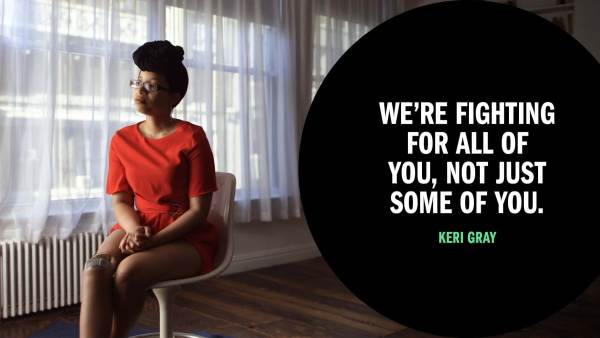
Intersectionality & Disability, featuring Keri Gray, the Keri Gray Group
Around the globe, people living with disabilities experience inequality in all its forms. Understanding intersectionality is essential to true inclusion. By centering those most marginalized and taking an intersectional approach in designing solutions, we can advance justice for all.
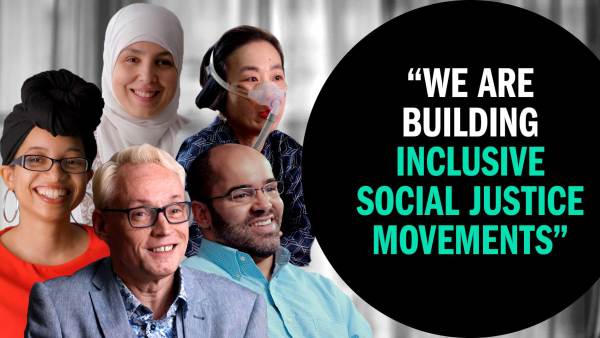
There is no justice without disability
Over one billion people in the world are living with a disability. We need to expand our definition of justice. To create a truly inclusive world, we need to recognize how disability intersects with issues of social justice. Racial justice, economic justice, and gender justice cannot exist without disability justice.
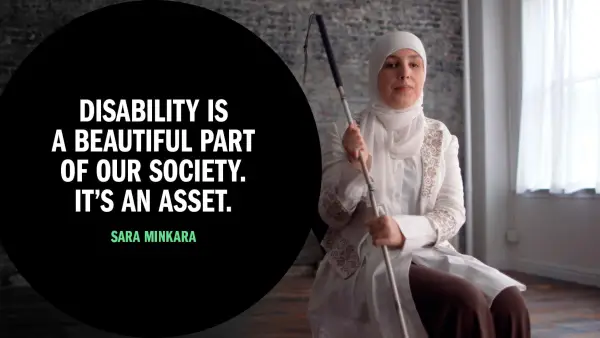
Disability Is an Asset, featuring Sara Minkara, Empowerment Through Integration
People with disabilities are the world’s largest marginalized population. Challenging discriminatory narratives and systems can help the disability community build power and create a more inclusive world, by contributing value across all sectors. Building a more inclusive world benefits everyone.
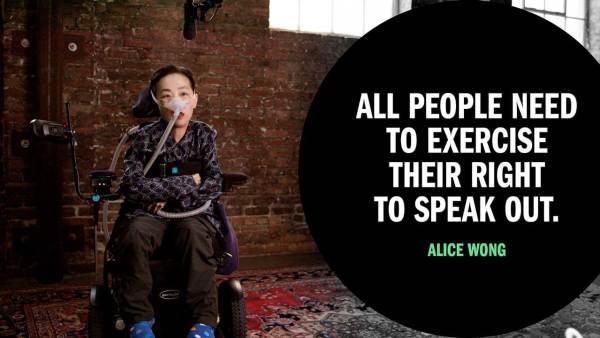
Political Participation & Disability, featuring Alice Wong
The right to vote is a fundamental part of building a thriving democracy in which all citizens can become active, engaged participants. People with disabilities face obstacles to political participation that need to be addressed in the journey to inclusion.
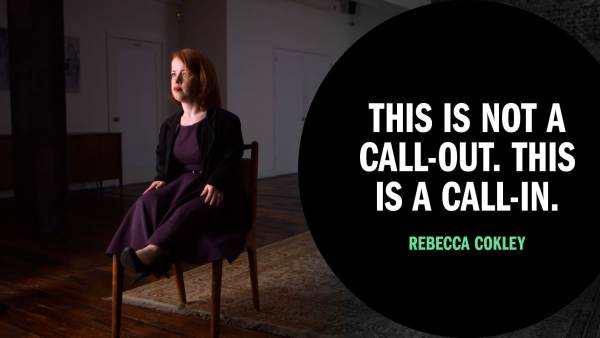
Your Values & Disability, featuring Rebecca Cokley, Center for American Progress
Disability needs to be included in the work of social justice. Through a commitment to diversity, equity and inclusion, and establishing organizational policies and practices, we can address challenges to accessibility and create an inclusive future.
